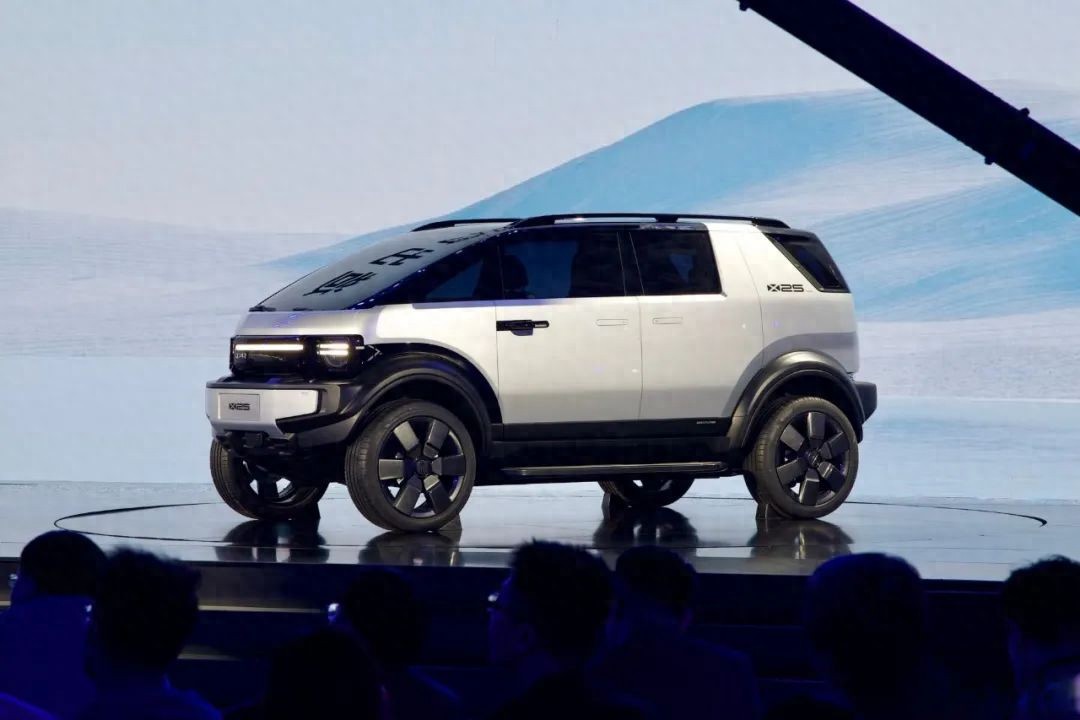iCAR Disrupts the Auto Industry with New Vehicle Strategy
Advertisements
The automotive market is undergoing a remarkable transformation,with the rise of electric and new energy vehicles shaping the future of transportation.Among the notable players trying to penetrate this dynamic market is iCAR,a subsidiary of Chery New Energy.As it seeks to establish its footprint,iCAR is introducing innovative products,including a new series of vehicles that not only compete but look to set new benchmarks in design and functionality.
Recent developments indicate that iCAR is planning to unveil an extended-range electric version of its iCAR 03,alongside the launch of a completely new model,the iCAR 05,which is expected to hit the market by the end of next year.This ambitious output reflects iCAR's commitment to rapidly scaling its operations to meet growing consumer demands.
With the introduction of the iCAR V23,which recently entered mass production after nearly three quarters of anticipation,the company is pushing forward with its expansion strategy.Insights from industry insiders suggest that the new assembly line at the iCAR facility is set to exceed a daily production of 350 units,outputting multiple models,including the iCAR 03 and the soon-to-be-released V23,with substantial contributions from the renowned Su Jun team,known for their expertise in industrial design and marketing within the Xiaomi ecosystem.
This collaboration emphasizes a vital yet often challenging marriage between varying corporate cultures—Chery's traditional engineering discipline and the agile,customer-centric approach that Su Jun's team embodies.As these two perspectives mesh,it becomes clear that the definition of value in vehicle design is under a gradual transformation.
The introduction of the V23 has not come without its challenges.Despite its anticipated launch,insiders caution that the project has faced delays,primarily due to rigorous quality assurance protocols native to traditional automotive manufacturing.A notable detail indicates that the V23's production faced potential setbacks during its Pre-Production (PP) phase—a crucial step before mass production.Here,any new model must effortlessly transition from small batch trials to full-scale manufacturing while addressing all potential manufacturing issues.
Chery,founded by a former president of a German joint venture,prides itself on a stringent quality control process reflective of German automotive standards.Over the years,it has earned various international quality certifications,solidifying its dedication to producing high-quality vehicles.This steadfast commitment to quality has bred a culture resistant to the kinds of shortcuts that might be found in more rapidly moving tech environments.
As such,even as the production of V23 commenced successfully,the rigorous standards imposed by Chery meant that several concerns emerged during the vehicle’s preliminary audits—concerns that could delay its market launch.Automation and quality control are crucial in Chery's ethos; however,Su Jun’s team,which spearheaded the V23's creative design,emphasizes user experience and cutting-edge appeal,suggesting a shift in the development narrative.
The emerging narrative provides a stark contrast between traditional engineering logic and a new focus on user engagement.The importance of establishing a profound connection with consumers cannot be understated,especially when discussing a vehicle designed decidedly for a youthful demographic—one that leverages modern aesthetics and adaptability over mere cost-effectiveness.The aim is to produce an engaging driving experience that resonates with younger generations who prioritize customization and interactions over conventional metrics of value.
As iCAR prepares to expand further into the market with the iCAR 05 and the extended-range model based on iCAR 03T,it is also rethinking its approach to consumer engagement.The Beijing-based design team,which is now a core part of the iCAR brand,has adopted a strategy focusing heavily on developing a line of vehicles that appeal to tech-savvy,environmentally-conscious consumers in major urban centers.
Key decisions around vehicle features have aimed to increase 'fun-factor' and customization capabilities,as seen with V23’s extensive array of aftermarket options,step height,and adaptable tech interfaces,allowing owners to personalize their vehicles significantly.However,this drive toward customization presents manufacturing challenges; distinctive designs often require additional modifications during the production phase,complicating routine quality evaluations.
Despite these hurdles,the pre-sales for V23 have shown promise,with substantial orders flooding in shortly after its announcement.This reflects not only effective marketing strategies but also a resonance with consumer desires for connectivity and personal expression through vehicles.The pre-order surge exemplifies the potentially lucrative intersection of convenience,style,and technological integration that modern automotive models must navigate.
In embracing this modern ethos,which aligns closely with the tactics employed by newer "disruptor" brands of the automotive landscape,iCAR mirrors the operational agility seen in leading tech companies.This juxtaposition underscores a significant cultural shift within Chery—a move away from rigid methodologies toward a more flexible,user-oriented design philosophy.
This strategic pivot reflects an understanding that to remain competitive in the rapidly evolving new energy automotive sector,companies like iCAR must harness innovative marketing methodologies and nurturing responsive relationships with their consumer base.With a burgeoning network of nearly 300 outlets nation-wide,iCAR is also enhancing its interconnectedness with consumers via pop-up experiences and product engagement events,eschewing purely traditional sales models.
This alignment of manufacturing,marketing,and consumer feedback mechanisms is essential for iCAR’s success in a marketplace increasingly swayed by user satisfaction and feedback loops.The cooperative dynamic between the Beijing design team and Chery’s traditional engineering prowess is not merely an experiment; it represents a vital dialogue between established practices and transformative customer-centric innovations.
Ultimately,the road ahead for iCAR is one paved with both ambition and caution.With internal expectations rising,much rides on the successful launch and reception of the V23 within the market—setting the stage for future models to follow.As the realization of this venture unfolds,the balance between engineering excellence and innovative design continues to define the path forward for iCAR as it looks to solidify its place in the future of mobility.
Leave a Comment